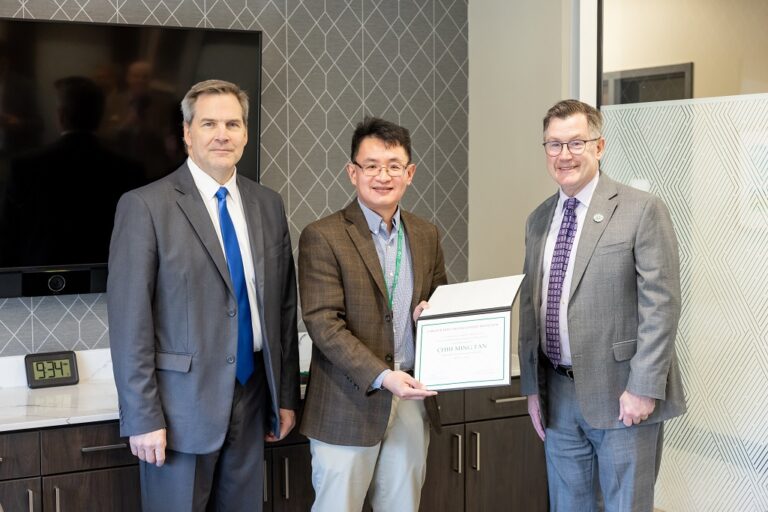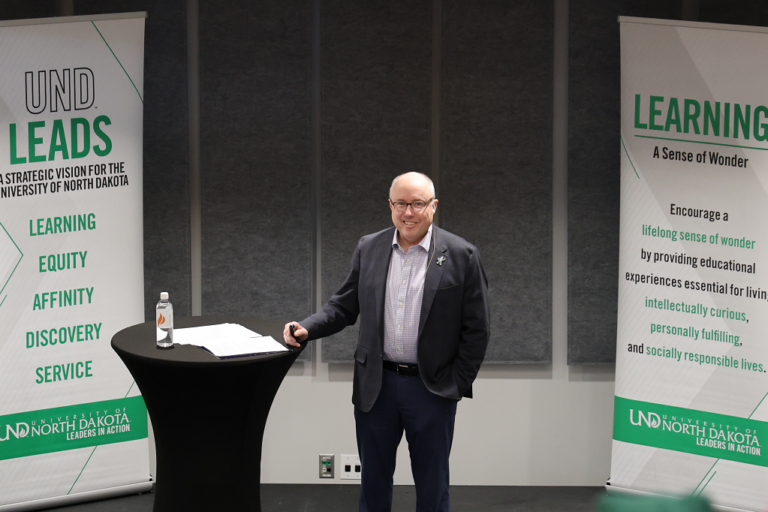Themed ‘Roots of the Earth,’ UND’s Writers Conference draws attendees from around North America
A panel discussion on Thursday focused on the many dimensions of stewardship

When author Marie Mutsuki Mockett was little, her mother would ask her to cut dead flowers to help new ones grow. Only later in life would Mockett come to think of this activity as an act of stewardship.
“It’s a basic lesson about interacting with plants in the environment,” she said. “I barely feel able to talk about stewardship because it is something that comes about with time and with age, and I hope continues to grow.”
Mockett made these remarks during a panel discussion on Thursday, which was the second day of the 52nd Writers Conference at the University of North Dakota. Organized by Writers Conference Director Crystal Alberts, the three-day virtual event brought together seven writers to explore the theme of “Roots of the Earth.”
Because the Writers Conference took place online, attendees from around North America joined the various events. At last count, people joined in via Zoom from British Columbia, Canada, Louisiana, and many points in between.
During an hour-long conversation on Thursday moderated by Paul Worley, associate professor of English at Western Carolina University, Mockett and poets Joy Harjo and Ross Gay looked at the meaning of stewardship through the prisms of land, culture and language.
The definitions of stewardship
For her latest book, American Harvest, Mockett followed wheat farmers in the U.S. heartland. She remembered one farmer telling her, “We try to be good stewards of the land.”
“I had never really thought about what this phrase meant,” Mockett said. “It’s such a profound concept, the idea that not only do you work the land, but that you care for the land.”
Aside from care, stewardship encompasses gratitude and sharing, said Harjo, who in 2019 became the first Indigenous poet to hold the title of United States Poet Laureate. “It really has to do with passing on what was given to you by the ancestors,” she said. “It is this unbroken river, these roots.”
Last year, Harjo edited a Norton anthology of Native Nations poetry titled When the Light of the World Was Subdued, Our Songs Came Through. The anthology embodies the meaning of stewardship in that it celebrates, preserves and commemorates Indigenous experiences.
Gay built on Harjo’s definition of stewardship by adding the notion of indebtedness. The latter comes through in his latest book, Be Holding, which unfolds into a single, long poem. By focusing on basketball legend Julius Erving’s midair “baseline scoop” in the 1980 NBA finals as a moment of suspension, the book-poem is a mediation on personal growth through the support of others. As a result, human connections carry a fundamental indebtedness, Gay said.
“This poem itself is trying to imagine what stewardship could be,” said Gay. “There is this idea of the gift that has been offered to me. I hope to just continue in the practice of gifting.”
Cultural and linguistic dimensions
Mockett’s first novel, titled Picking Bones from Ash, delved into cultural stewardship by chronicling the international trade of Asian art. Mockett described a tension between the authentic preservation of culture and the comfort of stereotypes. She also recounted her own experiences as the child of an American father and a Japanese mother. When visiting Japan, Mockett’s father would visit museums, while her mother preferred “lived experiences” as a means to expose her to Japanese culture.
“I’ve come to realize that there’s a difference between learning about something in the museum, and learning about something as a lived experience,” Mockett said. “The implications of that are huge for all of us, whatever our cultural background is and whatever our inherited history is.”
An integral part of culture, language is not only a vehicle of expression but also an object of stewardship. Harjo cautioned against the modern “diminishment” of languages that reduces them to quick texts devoid of deep meaning. Stewardship, in this context, “is about essentially taking care of [language],” she said. “That’s why we have libraries. Even a language itself is a library, a field of knowledge.”


